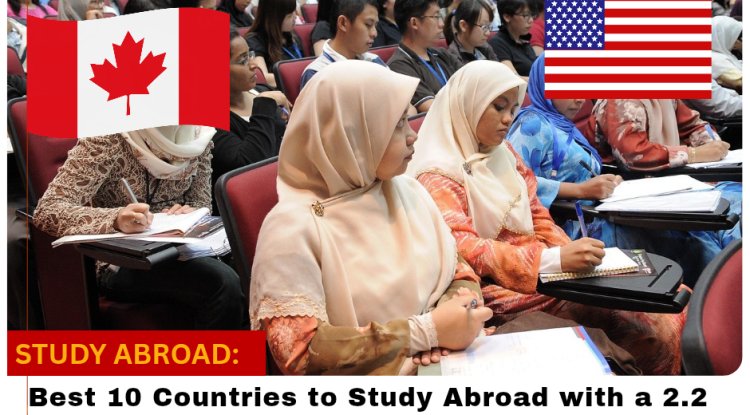ASUU Warns FG with 14-Day Ultimatum, Signals Nationwide University Strike
ASUU issues a 14-day ultimatum to Nigeria’s Federal Government, demanding action on university funding and unresolved issues from the 2009 ASUU-FGN Agreement. Failure to comply by October 12, 2025, may trigger a nationwide strike, disrupting over 2 million students.

ASUU Warns FG with 14-Day Ultimatum, Signals Nationwide University Strike
In the ever-turbulent landscape of Nigeria’s higher education sector, the Academic Staff Union of Universities (ASUU) has once again thrown down the gauntlet. On September 28, 2025, during its National Executive Council (NEC) meeting at the University of Abuja, ASUU issued a stern 14-day ultimatum to the Federal Government (FG). The union decried the persistent neglect of public universities and warned that failure to address its long-standing demands could trigger a two-week warning strike, followed by an indefinite shutdown of academic activities across the nation.
This development is no isolated incident. ASUU, the powerhouse representing over 50,000 academic staff in Nigeria’s federal and state universities, has a storied history of industrial actions to advocate for better funding and welfare. From the eight-month strike in 2022 that paralyzed universities to shorter disruptions in recent years, these strikes have repeatedly highlighted systemic failures in the education sector. With the current ultimatum starting immediately after the NEC meeting, the clock is ticking—potentially until October 12, 2025—before chaos could ensue once more.
The Seven-Point Demands: A Cry for Sustainable Reform
At the heart of ASUU’s frustration are seven critical demands, meticulously outlined in the communique from the Abuja meeting. These aren’t new grievances; they stem from unfulfilled promises dating back to the 2009 ASUU-FGN Agreement, which aimed to revitalize public universities but has largely gathered dust. ASUU President, Prof. Chris Piwuna, didn’t mince words in the statement: “The union decried the neglect of the university system and the government’s consistent refusal to heed to its demands.” He further emphasized that the 14-day window is a final call: “If at the end of the 14-day ultimatum, the Federal Government fails to address these issues, the union may have no option but to, first, embark on a two-week warning strike and, thereafter, a total and indefinite strike.”
Let’s break down these demands for clarity:
1. Re-negotiation of the 2009 ASUU-FGN Agreement: This foundational pact promised annual funding injections of N1.3 trillion over five years for infrastructure and staffing but has seen only sporadic implementation. ASUU seeks a comprehensive renegotiation to reflect current economic realities, including inflation and currency devaluation.
2. Sustainable Funding of Universities: Public universities receive a paltry fraction of the national budget—less than 10% of the education allocation, far below UNESCO’s recommended 26%. ASUU demands a dedicated funding model to ensure long-term viability.
3. Revitalization of Universities: Echoing the 2009 agreement, this calls for immediate release of withheld funds (over N1.1 trillion) to upgrade facilities, laboratories, and libraries, many of which are in dilapidated states.
4. Addressing Victimization of ASUU Members: The union highlights unfair treatment of members at institutions like Lagos State University (LASU), Kogi State University (now Prince Abubakar Audu University), and Federal University of Technology Owerri (FUTO). This includes reinstatements, compensations, and an end to witch-hunts.
5. Payment of Outstanding 25–35% Salary Arrears: Lecturers are owed earned academic allowances from 2009, plus recent increments under the new minimum wage regime. These arrears have compounded over years, eroding purchasing power amid rising living costs.
6. Promotion Arrears for Over Four Years: Delays in processing promotions have left academics stagnant, with backlogged payments estimated in billions of naira.
7. Resolution of Third-Party Deductions: Unauthorized deductions from salaries by pension funds and cooperatives have plagued members, demanding refunds and regulatory oversight.
These demands aren’t extravagant; they’re essential for a functional education system. As Prof. Piwuna noted, the government’s establishment of a review committee—chaired by Abel Enitan, Permanent Secretary of the Federal Ministry of Education—has yielded no tangible outcomes, fueling the union’s impatience.

Government Response: Silence or Stalled Progress?
The FG’s track record on education funding is dismal. In the 2025 budget, education received just 7.9% of total allocation, prompting criticisms from stakeholders. While the Ministry of Education has acknowledged ASUU’s concerns in past meetings, concrete actions remain elusive. A spokesperson for the ministry, reached for comment, reiterated commitment to dialogue but offered no timeline for resolutions. This echoes previous administrations’ patterns, where committees are formed but deadlines slip away.
Opposition voices, including the African Democratic Congress (ADC), have seized on the ultimatum to pledge reforms if elected in 2027, underscoring the politicization of education woes.
Implications: A Ticking Time Bomb for Nigeria’s Future
The potential strike couldn’t come at a worse time. With over 2 million students in public universities, any disruption would derail academic calendars, exacerbate youth unemployment, and widen the brain drain as talented lecturers seek opportunities abroad. Economically, strikes cost billions in lost productivity; the 2022 action alone was estimated at N1.2 trillion. Students, already grappling with fee hikes and poor infrastructure, face yet another semester in limbo.
Beyond immediate chaos, this saga exposes deeper rot: underfunding has led to crumbling hostels, outdated curricula, and a global ranking slump—Nigeria’s top universities barely crack the top 1,000 worldwide. If unresolved, it risks eroding public trust in higher education, pushing more youth toward uncertified online alternatives or emigration.
Path Forward: Dialogue Over Deadlock
ASUU’s ultimatum is a clarion call for urgency. The FG must prioritize renegotiations, release funds, and foster inclusive talks. Stakeholders—parents, alumni, and civil society—should amplify these demands. Only through sustained investment can Nigeria’s universities reclaim their role as engines of development.
As the 14 days unfold, all eyes are on Abuja. Will this be another missed opportunity, or a turning point? The stakes for a knowledge-driven economy couldn’t be higher.
News Sources:
What's Your Reaction?





















